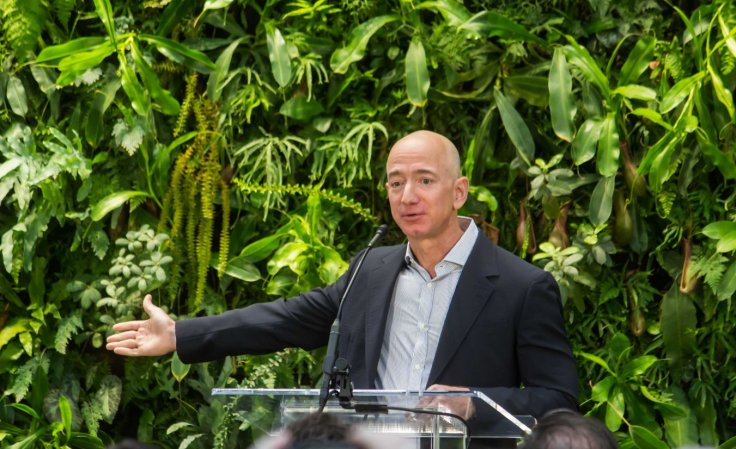Amazon founder Jeff Bezos is defending The Washington Post's recent choice to halt its long-standing practice of endorsing presidential candidates, after more than 200,000 subscribers unsubscribed the USA's prominent publication. The decision has sparked protests from readers and journalists alike, just days before the 2024 election.

In a Washington Post opinion piece published Monday, Bezos explained that presidential endorsements hold little impact on voters' decisions and that they risk increasing distrust in media. "Presidential endorsements do nothing to tip the scales of an election," Bezos wrote. "No undecided voters in Pennsylvania are going to say, 'I'm going with Newspaper A's endorsement.' None. What presidential endorsements actually do is create a perception of bias. A perception of non-independence."
The Washington Post's editorial board was reportedly preparing to endorse Kamala Harris before the decision was announced last week. The move led to several resignations and prompted criticism from respected Post journalists Bob Woodward and Carl Bernstein, known for their historic Watergate coverage. In a public statement, the two journalists expressed disappointment, writing, "We respect the traditional independence of the editorial page, but this decision 11 days out from the 2024 presidential election ignores the Washington Post's own overwhelming reportorial evidence on the threat Donald Trump poses to democracy."
Woodward and Bernstein argued that the Post's resources have allowed it to thoroughly investigate the potential impact of a second Trump presidency, making the timing of this decision both "surprising and disappointing."
The Washington Post's announcement also led to a significant wave of subscription cancellations. Reports indicate that as of Monday, more than 200,000 subscribers have ended their support, representing around eight percent of the newspaper's total paid circulation.
Critics have raised concerns over Bezos's motivations, noting that his other ventures, such as his space company Blue Origin, have ties to the federal government. Some believe the decision reflects Bezos's potential interest in appealing to conservative readers, suggesting that he may be distancing the Post from any anti-Trump stance. Robert Kagan, a longtime Post columnist and editor who resigned in response, claimed Bezos's decision seemed like a "quid pro quo," pointing to a meeting between Blue Origin executives and Trump administration officials that followed the announcement.
In his piece, Bezos denied these accusations, acknowledging, however, that his business and philanthropic connections to the government may create a perception of conflict. He emphasized that no campaign or candidate influenced the decision. "I would also like to be clear that no quid pro quo of any kind is at work here," he stated. "Neither campaign nor candidate was consulted or informed at any level or in any way about this decision. It was made entirely internally."
Last week, William Lewis, publisher and CEO of the Post, backed the decision in an editor's note, reminding readers that the paper has previously gone periods without making endorsements. "We see it as a statement in support of our readers' ability to make up their own minds on this, the most consequential of American decisions—whom to vote for as the next president," Lewis wrote.
The Washington Post isn't alone in its recent endorsement change. The Los Angeles Times also opted not to endorse a candidate this election cycle. Reports indicate that owner Dr. Patrick Soon-Shiong may have intervened to prevent an endorsement of Harris, though he claims the editorial board did not provide sufficiently impartial assessments of both candidates.
The response to these decisions underscores the complexities and challenges that major media outlets face when navigating political endorsements in an era of heightened media skepticism.








